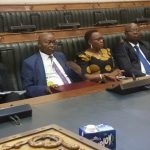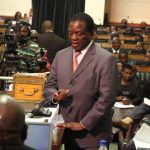The Road to Recovery
In the past 18 months we have been struggling as a country to deal with the legacies of 37 years of dictatorial control and maladministration. This has involved correcting our living standards and dealing with historical liabilities. Now that we are nearing the end of this phase, we need to work out how to get onto the road to recovery. In other countries like Argentina and Greece they have had the assistance of a big brother – the IMF and the EU. In our case, I think we are on our own.
For many in our land the present situation is simply impossible. We need a safety net that will assist many individuals to get through the next year until the benefits of any recovery can start filtering through. In addition, we need to start to take advantage of the many things that are our own integral advantages as a country – some of them a legacy of our recent past.
Let’s start with the need for targeted support for the vulnerable. When the Government made the right decision to remove all subsidies from the basic commodities of fuel, electricity, maize, vegetable oil and wheat, they hurriedly had to reverse themselves when they appreciated that this was a step to far. But what was wrong being not the basic decision, but its sequencing. What we should have done was to introduce a national voucher system for these basis needs.
Under such a system we could get the Reserve Bank to print vouchers which could be exchanged for these basic foods at any store or supermarket and provide sufficient food to meet basic needs. This would enable the absolute poor among us to buy their basis needs to survive.
Subsidies on an untargeted basis would cost us many times more than that and achieve little, most of the expenditure wasted on corruption and on other beneficiaries who do not need subsidy. Current blanket maize subsidies will cost us nearly Z$3 billion in the next 12 months.
Then we have to start getting the pension and insurance companies with pension liabilities to start adjusting pensions in line with the decline in the value of our currency. I need to be persuaded that this is not possible even now.
There is the need to completely change the way in which we deliver education and health services to our people. The present system is simply not working and if things continue like this health and education for the great majority will be a thing of the past – if it is not already so. We need to transfer responsibility for these essential services to the Communities they serve. Let School Boards take over the administration and development of schools, let local elected Boards take over local clinics and hospitals. Make sure these institutions are run properly with audited accounts and adequate supervision and then support the poor and disadvantaged with government funded grants that are based on an assessment of individual needs and capacities.
Then I think we have to take a close look at every line item of Government expenditure at all levels. We need to adopt what we call in the private sector a zero based program of assessment. Is this activity essential to the service or product being produced, is this the best way of getting there, is there any waste and are we working to capacity and on a least cost basis? Can it be better done by the private sector? I am afraid that over the past 40 years we have allowed our Civil Service and Municipalities to become bloated with people who do next to nothing for their salaries.
Then we need to create value and financial capacity by providing people who today have no security over the assets they are using or living on both in rural and urban areas. If we were to adopt a simple 99 years lease for use in rural areas by farmers, we could give title rights to a million farmers occupying on average 40 hectares worth a conservative Z$15 000 per hectare – Z$600 billion. This vast store of equity wealth would transform the lives of our poorest community – the small scale farmers in rural areas. It would be quickly translated into production and wealth and enable our bankers to unlock vast potential for private sector funding and support.
In urban areas, largely because of the activities of the land barons, we have hundreds of thousands of homes in urban areas that do not have any security of title. Just give them freehold legal title and we would create another Z$2 trillion in capital value – all of which could be used as collateral for borrowings that could go into a multiple list of end uses. One of the great assets we have are the unencumbered fixed assets we have created over the past 40 years. Let’s now put these to work for everyone’s benefit. Continued next page
(279 VIEWS)


